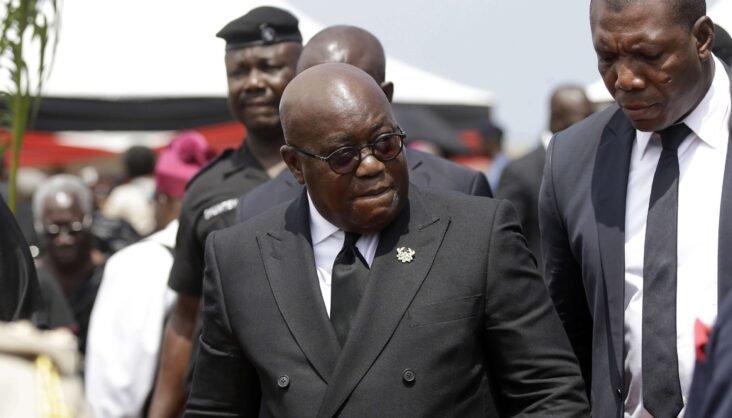
Ghana may struggle to raise the full $5bn it wants to borrow from international markets this year given the scale of its debts, analysts say.
“Any eurobond issuance this year is likely to be below the targeted $5bn,” says Mark Bohlund, senior credit research analyst at REDD Intelligence in London. “Ghana’s severe fiscal and public debt challenges will be difficult to sugar-coat to potential investors.”
The International Monetary Fund (IMF) deemed Ghana at high risk of debt distress in April 2020. With interest costs at close to 50% of government revenue, Ghana is already over-indebted, says Bohlund. An IMF annual review planned for the third quarter could make support conditional on a restructuring of external and overall debt, he adds.
- Still, Ghana’s debt level is “amongst the highest of any country we look at, and without the backstop of an IMF deal,” Robertson says. “It means they need to demonstrate a lot of fiscal restraint.”
- The slow pace of the consolidation path outlined in Ghana’s budget statement of 12 March leaves Ghana exposed to “risks of fiscal slippage”, according to Fitch Ratings. The budget aims to reduce the fiscal deficit from 13.8% of GDP in 2020 to below 5% by 2024.
Crunch time
Debt levels were already a concern before the Covid-19 pandemic, says Leeuwner Esterhuysen, an analyst at NKC African Economics in Cape Town. Esterhuysen estimates that government debt will rise to 92.1% of GDP this year, up from 86.9% in 2020.
- Easy financing conditions have made tax collection less urgent in recent years, and Ghana’s government revenue-to-GDP ratio has slipped, Bohlund says. “This trend clearly needs to be reversed.”
- In 2019, tax revenue represented 12.2% of Ghana’s GDP, compared with 15.1% in Kenya. That is also behind Zambia, which defaulted on its debt in 2020 and has a five-year average of 18.5%.
- With interest costs and the public-sector wage bill absorbing around 90% of government revenue, cutting the budget deficit will depend on increasing tax collection, which tends to be a gradual process, Bohlund says.
- “This will take time that Ghana simply does not have, making any turnaround very difficult to envisage.”
Ghana remains one of the safest markets for investment in sub-Saharan Africa, and investor appetite for the debt is likely to be high, says Anaïs Auvray, West Africa consultant at the Africa Matters advisory firm in London. But concerns over the country’s debt, more than half of which is external loans, is likely to increase the cost of borrowing, she says.
The new cash raised needs to be used to accelerate Covid-19 vaccinations and towards transport and logistics infrastructure projects such as the logistics hub around the port of Tema, Auvray says. In practice, she fears some of the cash may be used to cover energy sector liabilities.
Though the country has enough generation capacity to meet current demand, it still carries legacy debts from excess capacity related to take-or-pay contracts with independent power producers.
The government delayed unpopular tax reforms until after the 2020 presidential election, but “now is crunch time” to impose new tax collection measures, says Auvray.
There is, Fitch says “a significant risk that public finances could fall short of the goals outlined in the budget, particularly given the government’s lack of a clear majority in parliament.”
Bottom line
The pressure is on for President Nana Akufo-Addo to prioritise improving tax collection in his second term.


